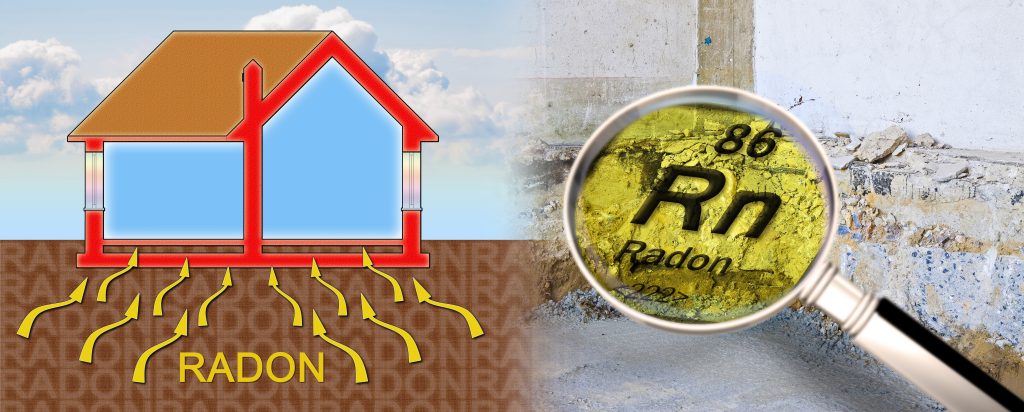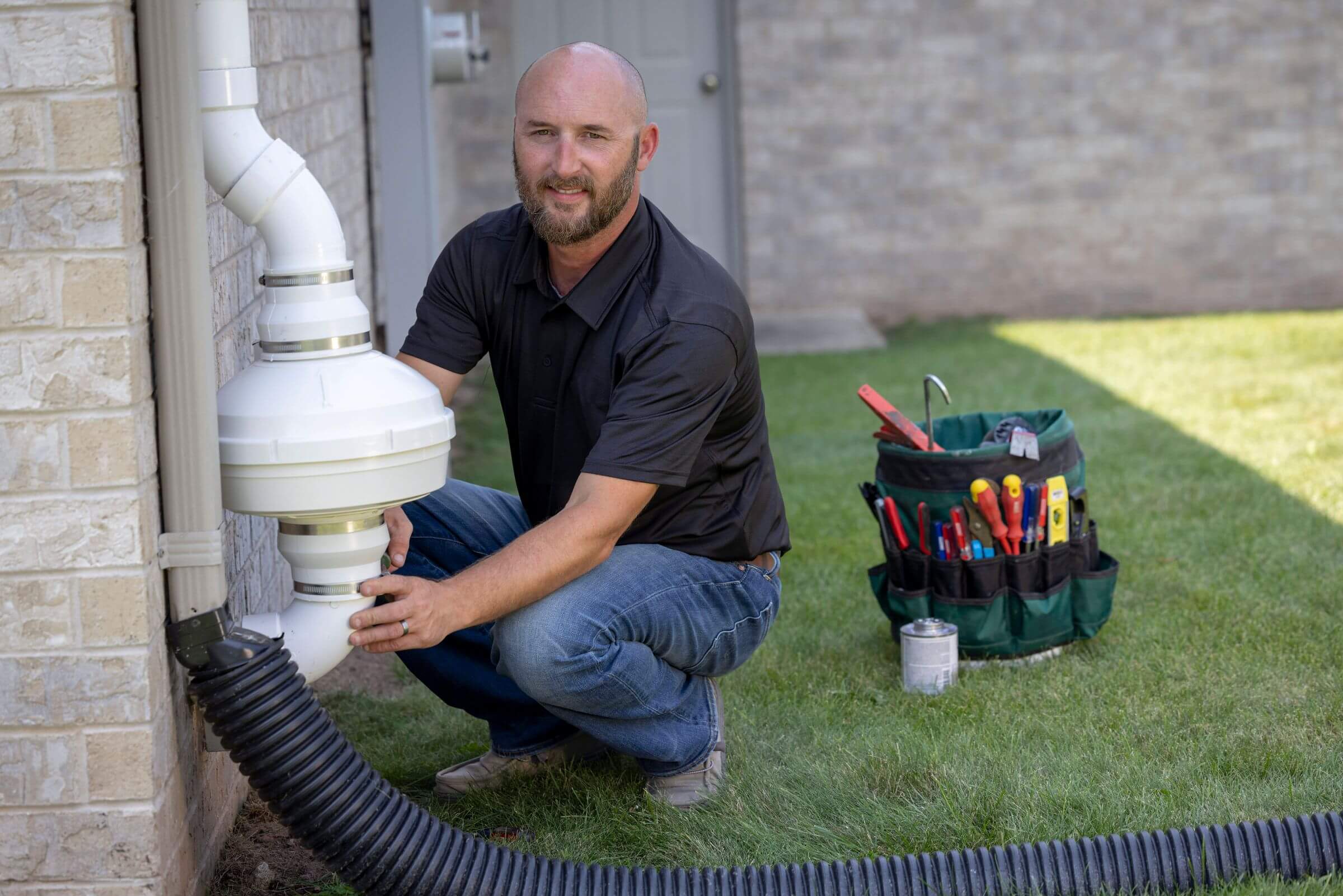Finding the right radon mitigation company is crucial for ensuring a healthy living environment, especially in Colorado where radon levels are exceptionally high. As radon is the number one cause of lung cancer among nonsmokers, addressing and mitigating this issue cannot be overstated.

Here’s a comprehensive guide to help you choose a reliable radon mitigation partner.
Qualifications and Certifications to Prioritize
When selecting a radon mitigation company, certifications are key indicators of their expertise. These certifications demonstrate that the company invests in ongoing education and training for their technicians. For instance, the NRPP (National Radon Proficiency Program) certification ensures that the professionals are up-to-date with the latest radon mitigation techniques and safety standards. It is important for customers to verify these credentials by checking online through the issuing organizations or by requesting documentation directly from the company.
Experience and Track Record of Success
The experience of a radon mitigation company can greatly influence the quality and effectiveness of their services. Companies that have been in business for several years tend to have more practical experience in dealing with various radon problems. This experience is often backed up by numerous case studies or customer testimonials, highlighting their expertise in successfully mitigating radon in diverse home settings. By reviewing these testimonials and case studies, homeowners can gain insights into the experiences of previous customers and the company’s ability to handle specific challenges related to radon mitigation.
Transparency in Pricing and Contracts
Transparent pricing is essential when choosing a radon mitigation company. Homeowners should receive a detailed cost estimate before committing to a service. This estimate should clearly outline the cost of installation, any ongoing maintenance fees, and highlight any potential hidden charges. A reputable company will provide a transparent breakdown of costs without resorting to high-pressure sales tactics. When reviewing the contract, it is important to ensure that the terms match what was discussed verbally—this clarity can prevent misunderstandings about the services being provided and the total cost involved.
Quality of Equipment and Mitigation Techniques
The quality of the equipment and the techniques used by a radon mitigation company significantly impacts the effectiveness of radon reduction in your home. Reputable companies use modern, high-quality equipment that aligns with EPA-recommended mitigation methods. When consulting with potential contractors, ask about the types of systems they install and how these systems are maintained. It’s essential that the company guarantees radon levels will fall below 2.8 pCi/L, which is a stricter standard than the EPA’s recommendation. Checking if the systems come with a guarantee can add an extra layer of assurance regarding their effectiveness.

Customer Service and Communication Standards
Effective customer service and communication set the foundation for any successful business relationship. A professional radon mitigation company will be responsive to inquiries, provide clear and comprehensive answers, and maintain open lines of communication throughout the mitigation process. Their customer service should also extend post-installation, ensuring any issues are swiftly addressed. During initial interactions, assess how well the company communicates their process and timelines—this can be indicative of the service quality you can expect throughout your engagement with them.
Warranties and Follow-Up Services
Warranties and follow-up services are a vital part of securing long-term radon mitigation success. Radon mitigation systems should come with robust warranties to cover potential future maintenance and repair needs. These warranties should also be transferable, offering added value should the homeowner decide to sell the property. Post-installation, follow-up testing should be conducted to confirm the system’s effectiveness over time. Such proactive customer service ensures that the radon levels remain safe and that the system continues to function as expected.
Local Knowledge and Compliance with Regulations
Hiring a company that has a thorough understanding of local conditions and regulations is crucial for effective radon mitigation. Local knowledge ensures that the company is familiar with regional building codes and radon concentrations, allowing them to tailor their systems accordingly. Moreover, compliance with state or regional standards not only ensures the legitimacy of the service but also guarantees that the mitigation efforts align with the latest environmental and construction guidelines. Therefore, it’s beneficial for customers to inquire about the company’s familiarity with local regulations and their past projects in the area.
Red Flags to Avoid in Radon Mitigation Companies
In any service industry, recognizing red flags can help avoid subpar experiences. When choosing a radon mitigation company, be cautious of operations that lack reputable certifications and have a history of poor reviews. If a company is hesitant to provide references or past customer testimonials, this could indicate a lack of transparency or previous customer dissatisfaction. These warning signs should prompt potential customers to reconsider and possibly look elsewhere, ensuring they select a service that is both reliable and effective. Here are a list of red flags to look out for:
1. Lack of Certifications: If the company cannot provide certifications from recognized bodies such as the NRPP or NRSB, this could indicate they lack the necessary training and expertise.
2. Poor Online Reviews: Consistently negative reviews and low ratings on platforms like Angi or HomeAdvisor can reflect a history of unsatisfactory service or ineffective mitigation efforts.
3. Refusal to Provide References: A reputable company should willingly provide references or testimonials from past clients. Hesitation in doing so might suggest they have something to hide regarding their service quality.
4. Vague or Incomplete Pricing Information: If a company is not transparent about their pricing structure or pushes high-pressure sales tactics, it indicates they might be trying to hide potential hidden fees or overcharge for their services.
5. No or Limited Warranty: Companies that do not offer warranties on their mitigation systems may not be confident in the longevity or effectiveness of their solutions.
6. Lack of Follow-Up Services: A professional service provider should offer follow-up testing and support to ensure the mitigation system remains effective. If these services are absent, it speaks to their lack of commitment to long-term results.
7. Unfamiliarity with Local Regulations: Companies unfamiliar with local building codes or environmental guidelines may not be fully equipped to handle the specific challenges in your area.
Questions to Ask Before Hiring a Radon Mitigation Company
Engaging with prospective radon mitigation companies involves asking the right questions to gauge their expertise and service quality. Consider asking about their mitigation process, including the steps they take from initial assessment to post-installation testing. Inquire about the expected timeline for the entire process and any guarantees they offer on system performance. Furthermore, ask for examples of past projects similar to your home’s situation to better understand their experience and capabilities in delivering successful radon mitigation outcomes. Specific questions to ask include:
- What certifications do you hold?
- How many years of experience do you have with radon mitigation?
- Can you provide references or testimonials from past clients?
- What is included in your pricing, and are there any potential additional fees?
- What types of mitigation systems do you install, and can you guarantee levels below 4.0 pCi/L?
- Do you offer warranties and follow-up services? If so, what do they cover?
- Are you familiar with local building codes and compliance requirements?
- What costs should be expected if the levels are not reduced adequately after the initial installation?
Conclusion
While the cost of radon mitigation can vary, prioritizing quality and expertise is crucial for your safety. By focusing on the qualifications, experience, and communication standards of potential companies, homeowners can make informed decisions that effectively address elevated radon levels. Taking action promptly after detecting high radon levels ensures the wellbeing of all household members. For more information or to schedule a radon mitigation service in Colorado, contact Colorado Radon Company and learn more about radon risks and solutions today.